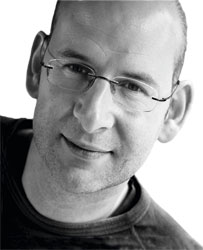 In Fifa’s about-turn over the 2022 World Cup – maintaining it will be in Qatar but likely to require the rest of football to accommodate it in the winter – there is an inability to recognise the organisation’s own faults that is so vast it borders on supra-human.
In Fifa’s about-turn over the 2022 World Cup – maintaining it will be in Qatar but likely to require the rest of football to accommodate it in the winter – there is an inability to recognise the organisation’s own faults that is so vast it borders on supra-human.
If the executive committee decides on a winter move as expected, it is not simply a matter of high-handedly asking world football to rearrange its fixtures and calendar.
The European Professional Football Leagues (EPFL) issued a reasoned statement not absolutely setting their face against
a move – as Richard Scudamore, the combative Premier League chief executive, has – but asking for a serious analysis of the implications before any decision is made.
Sadly, the chances for such a proper professional approach over the hosting of the world’s greatest sporting tournament
are dispiritingly slight. Much more likely is an executive committee meeting behind several reinforced closed doors in Fifa’s big, black bunker of a headquarters in Zurich. Then, one of Sepp Blatter’s famous press conferences, in which he will present himself as captain of the Fifa bateau, steering it to calm waters, by sailing the World Cup into the Gulf at a more temperate time of year.
True accountability for the process, a genuine explanation of what decision has been taken and why, will likely be missing. The reason to grimly suspect this will happen is because Fifa refuses even to see this question is much greater than the one of summer temperatures in Qatar.
Blatter’s acceptance that the issue needs to be addressed fundamentally undermines the decision-making process which, in December 2010, awarded the World Cup to Qatar. Logically, to ask for a move to winter demands the whole process be run again.
That is not a roundabout way of objecting to Qatar as a host; the more fundamental point goes to the reason why the EPFL is unlikely to see its request for an honest and thorough appraisal of the decision.
The difficulties of hosting a summer World Cup in Qatar were raised by FIFA’s own technical reports into the countries bidding to host the 2018 and 2022 tournaments, which were voted on together.
Yet the organisation whose executive committee voted for Qatar on that basis now appears to be recognising that a tournament in near 50-degree heat and stifling humidity might not be ideal. It suggests these men might not have bothered to read the technical reports before voting.
We know, from the Qataris, who mounted a splendid and energetic campaign, that the ExCo members did not feel they had to actually visit any of the countries before making their decision. The lack of published explanation for selecting a particular country, and the fact the decision countered Fifa’s own professional advice, leads one to suspect the probity of the bid process.
Again, that is not to imply Qatar did anything improper. FIFA’s secretary-general, Jerome Valcke, now leading the winter-move diplomacy, has said he did not really mean what he wrote in an email that Qatar “bought” the World Cup.
For all the raised eyebrows at the tiny but enormously rich state gaining enough votes to host a tournament – for which there was no infrastructure – nothing untoward has been proved, and the Qataris take great exception to any suggestions of impropriety.
Yet members of that ExCo have since been found guilty, by various forums, of corruption. Jack Warner, to whom Valcke wrote that email, is gone. Chuck Blazer, his long-time partner at Concacaf, was found to have profited massively from its business. Mohamed Bin Hammam, of Qatar, is banned for life. Power-brokers Nicolas Leoz and Ricardo Teixeira resigned shortly before damning reports on their conduct and fondness for FIFA money.
Those men were all major influences and voters in the process which resulted in Qatar being awarded the World Cup without explanation. FIFA will not make everything all right by telling the world this decision cannot be moved, but instead, all the rest of football must move to accommodate it.



